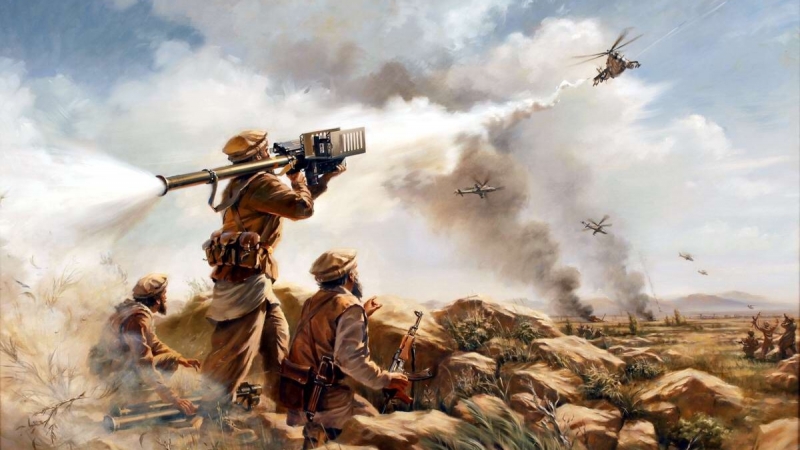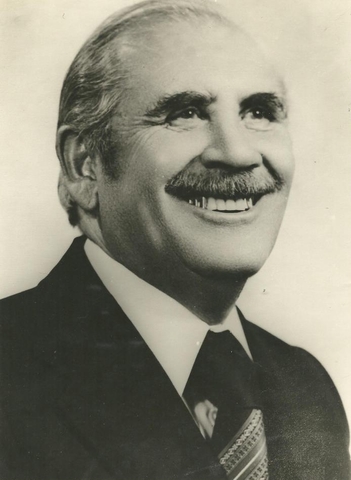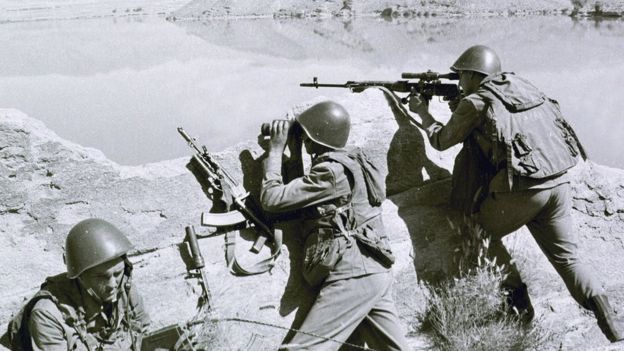
https://crescent.icit-digital.org/articles/reflections-of-the-soviets-1979-invasion-of-afghanistan
On 27 December 1979, members of a Soviet airborne brigade were airlifted into Kabul, Afghanistan to overthrow the Afghan government and install a sympathetic regime, thus making the same mistake as several great empires had made before them. Within hours of the initial troop deployment, Soviet forces had overwhelmed the Afghan presidential guard and captured president Hafizollah Amin who was later executed (Phillips). Within days, Soviet armored units had advanced into the countryside to secure major population centers, airbases, and communication lines, and began a full-scale counter-insurgency operation against Muslim tribesmen who had been waging a guerrilla war against the Afghan central government (Phillips).
How did we get to this point?
Soviet involvement in Afghanistan can be loosely traced back to a loan of the equivalent of $100 Million granted to the Afghan government, headed by King Muhammad Zahir Shah, to finance the first Five-Year Economic Development Plan in 1957. The Plan was intended to develop the infrastructure and economy of Afghanistan, and was followed by a second five-year plan in 1962 (Kakar, 8). Soviet support came after Afghan appeals to the United States government for economic and military aid had failed and U.S. Secretary of State John Foster Dulles determined that Afghanistan was of no “security interest” the the United States, forcing the Afghans to turn to the USSR for support (Kakar, 9).
Dependence = Independence?

https://baztab.news/article/826830
On 17 July 1973, Muhammad Daoud Khan staged a coup and peacefully overthrew his cousin and brother-in-law King Muhammad Zahir Shah (Heller). Daoud Khan’s regime held power amid significant opposition throughout Afghanistan until Khan was overthrown and replaced by a pro-Marxist regime headed by Nur Muhammad Taraki in 1978 (Heller). Taraki’s regime began to transition Afghanistan into a socialist society by redistributing land, cancelling debts, repressing Islamic institutions and dignitaries, and “compulsory political-education classes under the guise of an anti-illiteracy campaign” before being succeeded by Hafizollah Amin (Heller). The result was widespread revolt among tribal groups in the countryside that were opposed to a secular regime that aimed to dissolve the religious fabric of Afghanistan. The Soviet government provided military and economic aid to Amin’s regime until December 1979 when ” a rump meeting of the Politburo elected to intervene militarily because of the region’s strategic importance, popular opposition to the Afghan government, and rumours that Kabul was making overtures to the American government” (Freeze, 446). The Soviets’ objective was to prop up the faltering Afghan government and install the more moderate Babrak Karmal as president to restore Afghanistan’s status as a Soviet client state (Britannica). However, Karmal was unable to achieve popular support, and the Mujahideen rebellion grew with the support of the United States to drag the USSR into a 10-year war that could not be won.

https://www.timetoast.com/timelines/ussr-a2d06ed9-011b-4181-8c47-3031dac2bf0d
A Foreign War is a Great Way to Pull a Stagnant Economy out of Recession
When the Soviet military entered Kabul in 1979, the USSR was in no position to conduct a prolonged foreign military campaign. Despite the deployment of Soviet units to Afghanistan from as far away as Hungary and East Germany, a demonstration of the strategic mobility and flexibility of the Soviet military, the Soviet economy was in sharp decline under the stewardship of Leonid Brezhnev (Freeze, 440). Furthermore, the invasion was a shining example of Brezhnev-era foreign policy, where a close circle of advisors was consulted and raw military power was preferred over a nuanced understanding of events on the ground (Seventeen Moments). These two aspects were what ultimately doomed the Soviet effort in Afghanistan. The Soviet Union ultimately signed an accord with the United States, Afghanistan, and Pakistan to institute a full withdrawal from Afghanistan. The last Soviet troops departed Afghanistan on 15 February 1989 after failing to install a sympathetic regime and losing more than 15,000 soldiers.

https://www.bbc.com/news/world-europe-34619068
The Soviet war in Afghanistan marked the beginning of the end for the USSR as a global superpower. The already strained economy was further hampered by the diversion of resources for the war effort that had no end in sight. Additionally, the tense relations with the west before the Soviet invasion were only made worse through the prolonged conflict. Lastly, the USSR’s reputation as a champion for the “third world” was ruined by the Soviets’ asymmetric response to the Afghan situation, making them appear no better than the imperialist powers of the capitalist west. The Soviet war in Afghanistan pushed the Soviet Union past the point of recovery economically, militarily, and diplomatically until its ultimate dissolution in 1991.
Works Cited
Britannica. Soviet Invasion of Afghanistan. 4 December 2019. 22 April 2020.
Freeze, Gregory L. Russia: A History. New York: Oxford University Press, 2009.
Heller, Mark. “The Soviet Invasion of Afghanistan.” The Washington Quarterly (1980): 36-59.
Kakar, Mohammed. Afghanistan: The Soviet Invasion and the Afghan Response, 1979-1982. University of California Press, 1995.
Phillips, James. “The Soviet Invasion of Afghanistan.” 9 January 1980. heritage.org. 23 April 2020.
I found your post very informative. This is not a topic I knew much about and you do a good job of highlighting the key elements that led to an extended military campaign in Afghanistan by the Soviets. It seems like the war in Afghanistan was the point of no return for the Soviet Union. I am curious if you think there is something they could have done to perhaps improve the outcome, or do you feel there is nothing that would change the outcome after deciding on military action?
LikeLiked by 1 person
Kayt, it seems that the Soviet Union fell into the same trap in Afghanistan as every major power throughout history (including the United States) has. The Soviets entered Afghanistan partly to retain its status as a world power and when they were faced with a war that was not winnable, they decided to double down and increase their military presence in an effort to simply overwhelm the Mujahideen and demonstrate Soviet military prowess rather than cut its losses and withdraw. I think that had Brezhnev and his minions understood the complexities of Afghanistan they probably would not have intervened in the first place. In books I have read about British, Russian, and American soldiers who have served in Afghanistan, they (American authors) sometimes call many of the more remote provinces of Afghanistan “the Appalachia of Afghanistan” due to the fierce independent spirit of the people and their distrust of outsiders. No foreign military is welcome in the country and the people would have never stopped resisting the Soviets, similar to how they are responding to the U.S. military even after 19 years of fighting. Thank you for your comment!
LikeLike
What a fascinating post, Eric! I hope you found Jake’s post which compares the Soviet experience in Afghanistan to the US’s experience in Vietnam: https://jakej99.art.blog/2020/04/26/afghanistan-the-vietnam-of-the-soviet-union/comment-page-1/#comment-34
Also, why would the Soviets – and then the US — double down in what promises to be a costly, no-win situation? That’s kind of a rhetorical question, so don’t feel obliged to answer.
LikeLiked by 1 person
Dr. Nelson, I appreciate the comment! I think that states such as the Soviet Union in Afghanistan and the United States in Vietnam (and later Afghanistan) pursue these conflicts even if they cannot be won for political ends and to maintain world renown. I think that being perceived as an unstoppable military force gives a state like the USSR or the US leverage on the international stage and maintains its status as a world power. Additionally, a powerful military is often used to glorify the state and instill pride among the citizenry on the home front.
I read Jake’s post and he makes excellent parallels between the US effort in Vietnam and the Soviet campaign in Afghanistan. It seems that both of these cases boil down to the failure of both empires to understand the intricacies of the conflicts that they intervened in. Both the US and USSR opted to direct more manpower and money at the problem in lieu of understanding the underlying issues within Vietnam and Afghanistan respectively.
LikeLiked by 1 person
Hey Eric, I loved reading your post! I also wrote about the invasion, but what I loved about your take on the invasion is your discussion of how things got to the point where the Soviet Union felt they needed to invade at all. I found the part about the US’s unwillingness to provide aid especially interesting. And I love your title as well, I touched on that same idea at the end of my post too. Sometimes we just never learn our lesson until it’s too late.
LikeLiked by 1 person
Kendall, I appreciate the comment! I always find it baffling how humans seem to fail to learn from, or at least acknowledge, history and repeat the same mistakes as those who came before them. Especially in the case of the Soviet Union, which had a struggling economy, it is interesting how the Soviet government thought it could conquer Afghanistan where other more economically stable empires failed in the past. Even the United States has pursued the same doomed mission despite the drain it has had on the US economy.
LikeLike
Love the title! I honestly forgot the Persians tried. It always is just so surprising that such a great power just got destroyed in a sense by a relatively inferior opponent. They spent so much of their own resources only for it to fail. I never understood why major powers like the British, US, and the Soviets just don’t admit they lost and leave. Guess world powers are stubborn.
LikeLiked by 1 person
Kellan, I agree that many of the great powers are stubborn. It seems that the great empires throughout history believe that they must be stubborn and persistent to “one-up” other empires even if the objective is impossible to achieve. I think that Afghanistan is one of the shining examples of this. Aside from its rich natural resources, Afghanistan seems to be appealing because it the the “graveyard of empires,” so any force that can conquer it is “superior” to the Greeks, Mongols, Mughals, British, Russians, etc. that failed in the past.
LikeLike
Good post, Eric! I also wrote my post about the invasion of Afghanistan. I almost used that same picture you used in the beginning. I liked how you pointed out how war is good for an economy. I didn’t know about the huge loan to Afghanistan, good stuff!
LikeLiked by 1 person
Chris, I appreciate the comment! I honestly didn’t know very much about the prelude to the Soviet Invasion in 1979 until I did more research on the topic. Now that I know more about it, the Soviet decision to intervene militarily is that much more surprising
LikeLike
Hi Eric! I really enjoyed this post, it’s a great overview of the events, causes, and consequences of the Invasion of Afghanistan. I also appreciated your point about Brezhnev’s small circle, top-down style of managing foreign policy, and its vulnerabilities when expectations run up against reality.
LikeLiked by 1 person
Thank you for your comment! It seems like a common mistake for leaders to consult a small circle of advisors instead of subject matter experts before undertaking something like a foreign military campaign. In this case, it ended in complete disaster.
LikeLike
Hey Eric, You’re post very informational and I enjoyed reading it a lot. I find it funny how countries continuously make the same mistakes as their predecessors and act surprised when it doesn’t end in their favor. I also agree how this makes sense given the leader of the Soviets during this era leading them into a basic failure.
LikeLike
Matt, thank you for your comment! It is wild how governments and people fail to learn from or acknowledge history and end up repeating the same mistakes over and over again.
LikeLike